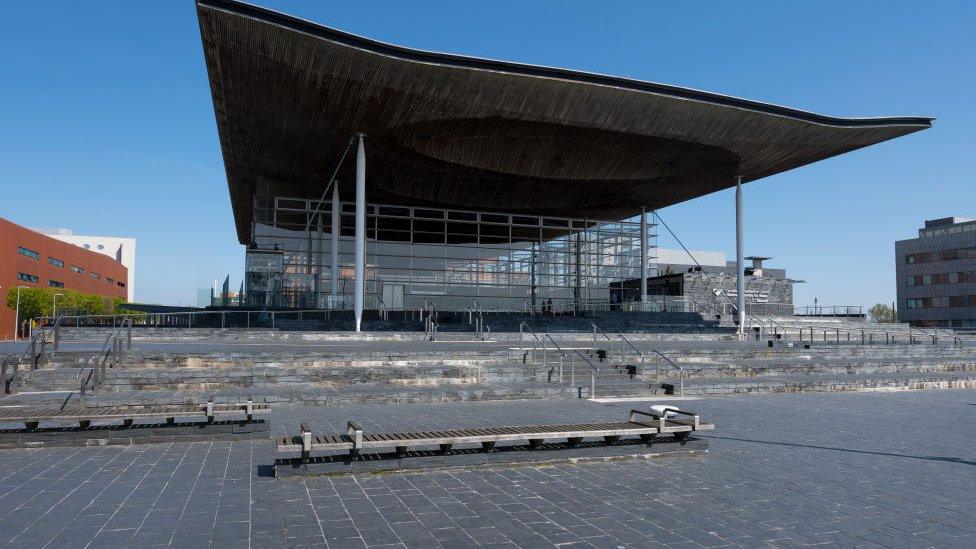Welsh government to fund reporter covering the Senedd
- Published

The initiative was criticised by the Welsh Conservatives who called it a "vanity" project
The Welsh government has announced it will fund a reporter to cover the proceedings of the Senedd.
The 12-month pilot will be run by the Caerphilly Observer newspaper, whose publisher said it would be free from editorial interference.
About £36,500 is being provided for the project, which will cover salary and other expenses.
The initiative was criticised by the Welsh Conservatives who called it a "vanity" project.
Under the plan stories written by the reporter would be made available to other media outlets, in a similar way to the BBC-funded and council-focused Local Democracy Reporting Service (LDRS).
Since the opening of the institution the number of journalists covering the Senedd's proceedings has dwindled.
It is part of a £200,000 package which the Welsh government says is being made to strengthen local journalism, as part of its co-operation deal with Plaid Cymru.
Richard Gurner, editor and publisher of the Caerphilly Observer, said the idea had come from the Welsh members of the Independent Community News Network - an industry body which represents about 120 publications across the UK.
"I think the success of the LDRS in highlighting the work that councils do can be mirrored by this project, and hopefully increase the understanding of the Senedd and its workings."
He said in part the project was making-up for market failure: "It's is difficult to cast the blame on individual organisations because if you ask any editor in any newsroom if they would like to have a dedicated reporter covering certain parts of society they would say yes, of course they would.
"Unfortunately the current business model of the media is under huge amount of pressure and those resources that were perhaps there 30, 40, even 10 years ago, aren't there today."

The new reporter will be based at the Senedd in Cardiff Bay
He added: "If there was any sort of suggestion that there would be editorial interference, I wouldn't be involved in the project.
"One of the caveats I've had in basically agreeing to be the home for this reporter is that the final editorial say rests with with me."
Other projects include £100,000 for the Welsh Public Interest News Accelerator to support "up to ten organisations committed to delivering locally relevant public interest news".
Labour deputy arts minister, Dawn Bowden, said: "A strong and vibrant media sector in Wales is an essential part of a modern democratic society."
Welsh Conservative shadow culture minister Tom Giffard said: "Wales has a longstanding issue with a lack of media choice, but at a time when the Labour government are cutting the Welsh health and education budgets, people will rightly ask whether this is the best use of their money.
"While the industry may be facing difficulties, this vanity project is the wrong priority for the people of Wales."
- Published4 May 2021

- Published30 March 2021
